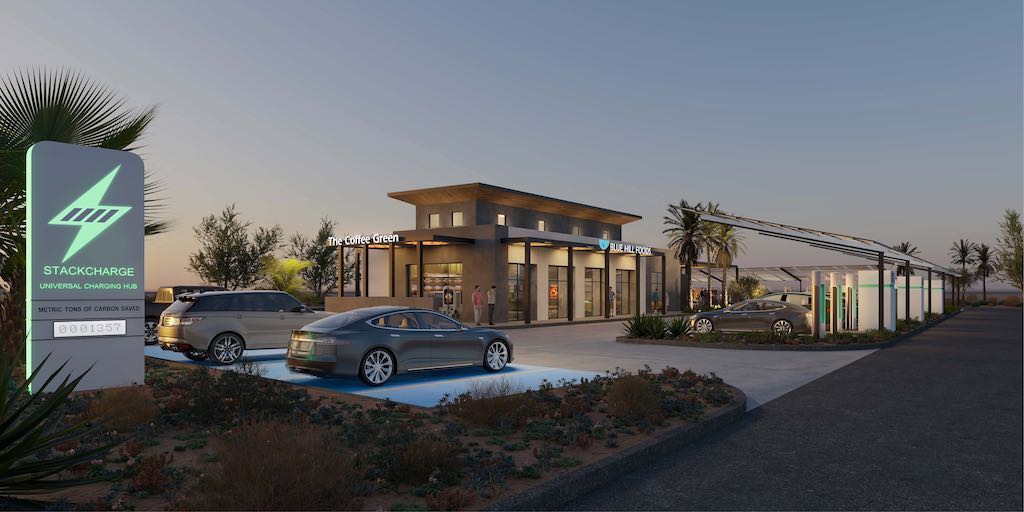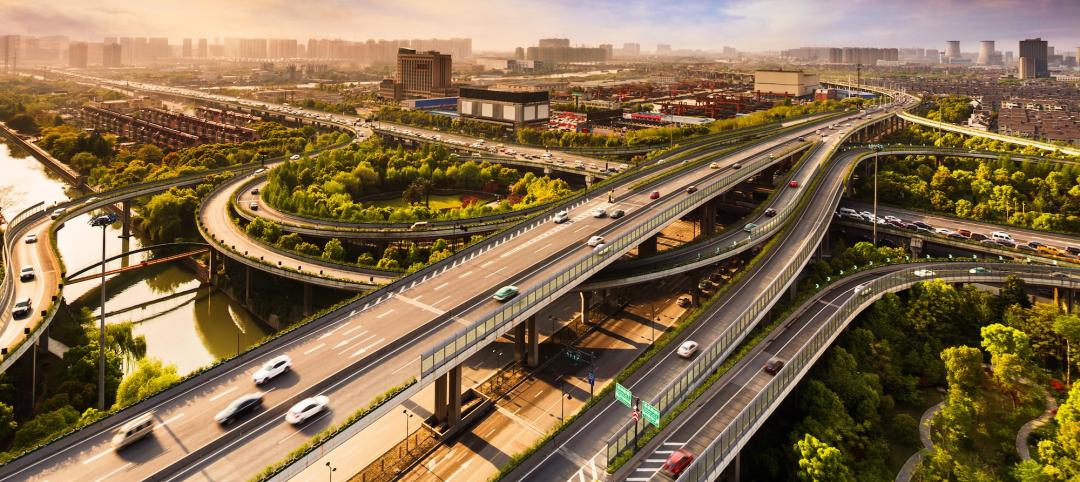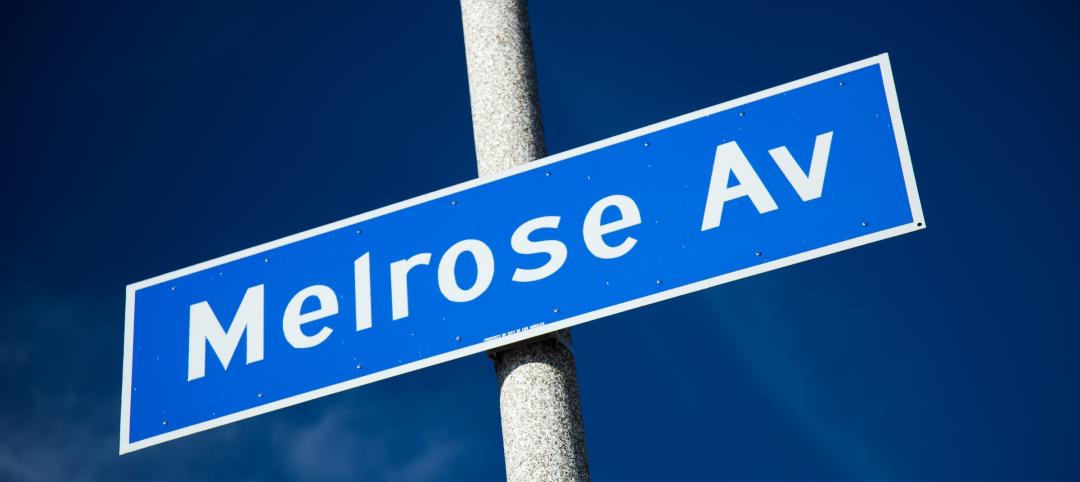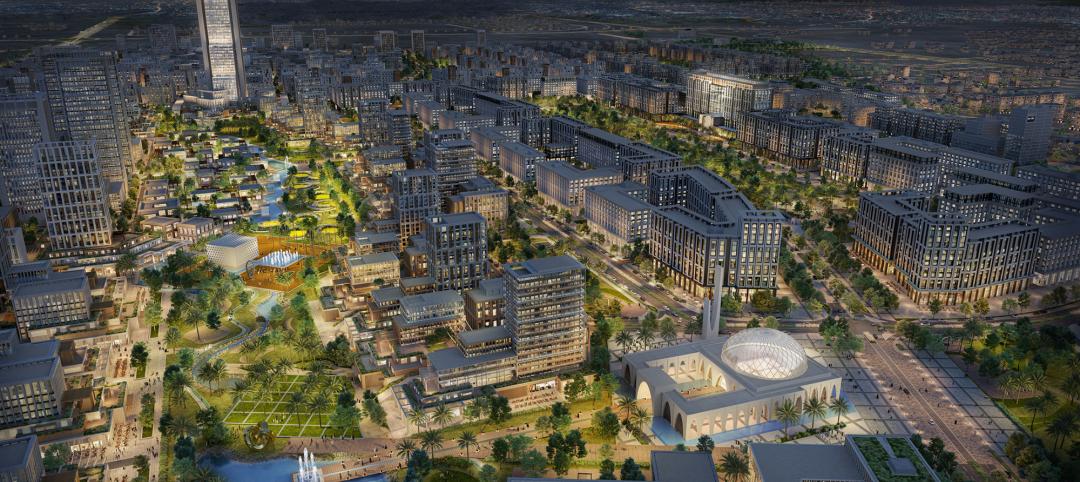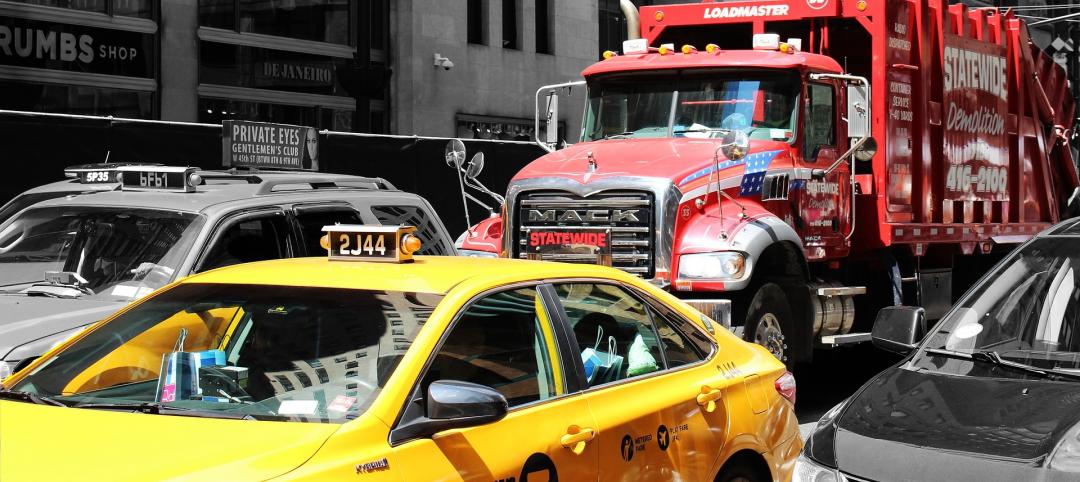There are just shy of 50,000 electric vehicle (EV) charging stations across the United States, according to Department of Energy estimates. But with anywhere from 35 million to 44 million electric cars and trucks expected to be on the roads by 2030 (compared to around 3 million today), the U.S. will need 1.2 million public chargers and 28 million private chargers to keep pace with demand, according to a recent McKinsey & Company report.
The federal infrastructure bill includes $7.5 billion for EV charging infrastructure, and President Biden has committed to adding 500,000 public chargers by 2030. There is also a slew of companies—including Tesla, ChargePoint, Electify America (which is partly owned by Volkswagon and Siemens), EVgo, and Volta—that’s building networks of Level 3 fast-charging EV charging stations, to say nothing of the partnership between General Motors and Bechtel to build thousands of fast charging stations.
Amid this jockeying for position, the startup LL Development plans to begin construction this fall on The StackCharge, an EV charging station that aspires to enhance the user experience with a quick-service restaurant, 24/7 restrooms, WiFi, and an outdoor lounge area. LL Development is led by entrepreneur Lawrence Fung and real estate investor Lester Ciudad Real, who spoke with BD+C about their concept and plans.
BIDING TIME WHILE RECHARGING
Fung and Real, both military vets, met as students enrolled in the Masters of Business program at the University of Southern California. They stayed friends but took circuitous career routes before forging their development company. According to LinkedIn.com, Fung also earned a degree in dentistry, and was a consultant for a clinical 3D printing app provider. Real spent two years with Goldman Sachs before shifting into real estate management and development.
Fung said the notion for The StackCharge can be traced to his own experiences using existing stations to recharge the Tesla he purchased 18 months ago. He observed that EV chargers, in the main, seemed to be set up to serve the shopping malls whose parking lots they were located in, rather than motorists waiting for their cars to recharge.
How to fill that time was the question. “Maybe the answer,” he recalled speculating, “was quick service food and other amenities” that might elevate the charging experience.
At the time, there were some concepts for EV charging stations floating around, including one conjured by Gensler and BMW Designworks that suggested ways to convert conventional gas stations to EV charging meccas. But Fung said he wasn’t convinced that most gas station operators were ready yet to change their business model, at least not until there was a lot more electric vehicles in use.
A CROWDED FIELD
The first StackCharge station, with 40 universal fast-charging ports, will be located on 1.29 acres in Baker, Calif., a pit stop between Las Vegas and Los Angeles. The nearly 2,500-sf retail pad on site—that once was a Starbucks—has a vacant existing drive-thru building that will be renovated and leased to a quick-service retail tenant. (LL Development has been working with the Los Angeles-based designer Side Studio.) The chargers will be able to recharge vehicles within 30 minutes for up to 200 miles of driving distance.
Baker is already served by Tesla Supercharger, EVgo, and Electrify America, so StackCharge will be entering an already competitive market. Fung quipped that electric vehicles are “iPhones with wheels,” and that his company plans to deploy digital marketing that targets drivers directly.
The first StackCharge is scheduled to open sometime next Spring. It will be the first of 10 stations in southern California that Fung and Real plan to open by the end of 2023. (The general contractor had not been selected at presstime.) Real said that the location of each site is seminal to its success. “We are looking to acquire sites that have strong retail real estate fundamentals and benefit from high transit traffic as we anticipate demand to skyrocket as EVs continue to dominate the market.”
StackCharge is being funded by co-development partners and family-office advisory firms. Eventually, Fung and Real plan to expand the concept to northern California and to other states.
Related Stories
Urban Planning | Oct 30, 2024
Bridging the gap: How early architect involvement can revolutionize a city’s capital improvement plans
Capital Improvement Plans (CIPs) typically span three to five years and outline future city projects and their costs. While they set the stage, the design and construction of these projects often extend beyond the CIP window, leading to a disconnect between the initial budget and evolving project scope. This can result in financial shortfalls, forcing cities to cut back on critical project features.
Designers | Sep 20, 2024
The growing moral responsibility of designing for shade
Elliot Glassman, AIA, NCARB, LEED AP BD+C, CPHD, Building Performance Leader, CannonDesign, makes the argument for architects to consider better shade solutions through these four strategies.
Multifamily Housing | Aug 21, 2024
Nation's leading multifamily developer expands into infrastructure
Greystar's strategy for infrastructure is driven by the shifting landscape of today's cities—primarily in the increased digitization, urbanization, and transitions to clean energy.
Urban Planning | Aug 15, 2024
New York City begins first large-scale porous pavement installation
New York City is installing its first large-scale porous pavement installation along seven miles of roadway in Brooklyn. The project will keep 35 million gallons of stormwater out of the combined sewer system each year, according to a news release.
Urban Planning | Aug 15, 2024
The magic of L.A.’s Melrose Mile
Great streets are generally not initially curated or willed into being. Rather, they emerge organically from unintentional synergies of commercial, business, cultural and economic drivers. L.A.’s Melrose Avenue is a prime example.
MFPRO+ News | Jul 22, 2024
6 multifamily WAFX 2024 Prize winners
Over 30 projects tackling global challenges such as climate change, public health, and social inequality have been named winners of the World Architecture Festival’s WAFX Awards.
Urban Planning | Jun 10, 2024
N.Y. governor halts Manhattan traffic congestion pricing plan
New York Gov. Kathy Hochul says she is indefinitely delaying the implementation of congestion pricing in Manhattan just weeks before the plan was to take effect. The controversial plan would have had drivers pay $15 to enter Manhattan south of 60th street.
Urban Planning | May 28, 2024
‘Flowing’ design emphasizes interaction at Bellevue, Wash., development
The three-tower 1,030,000-sf office and retail development designed by Graphite Design Group in collaboration with Compton Design Office for Vulcan Real Estate is attracting some of the world’s largest names in tech and hospitality.
Mixed-Use | May 22, 2024
Multifamily properties above ground-floor grocers continue to see positive rental premiums
Optimizing land usage is becoming an even bigger priority for developers. In some city centers, many large grocery stores sprawl across valuable land.
Sustainable Development | May 10, 2024
Nature as the city: Why it’s time for a new framework to guide development
NBBJ leaders Jonathan Ward and Margaret Montgomery explore five inspirational ideas they are actively integrating into projects to ensure more healthy, natural cities.


